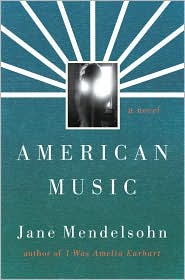When it rains, it pours. I don't consider myself to be a superstitious person by any means, but it seems a little too coincidental that everything came pouring down on me yesterday, Friday the 13th, after an already trying week.
Now that the school year is coming to a close, I have been frantically running around scheduling observation lessons and meetings, asking colleagues and supervisors for letters of recommendation, and revising and sending out my resume to the four school districts in the state that are actually hiring rather than laying off. It has been a very long, discouraging and frustrating five-year process in trying to find a full-time classroom teaching position in a struggling economy.
We live in a society ~ or at least I grew up with the belief pounded into my head like a sledgehammer from two parents who did not receive a college education ~ that if we go to college and earn a degree we will find a well-paying job; and we will have better successes and more opportunities for advancement with our career. I watched all of my friends do it. They live in nice homes, drive beautiful cars, have health insurance, and a retirement plan. They can afford to go out to dinner once a week or take a vacation (or two!) every year. Certainly, this belief about a college education can't be a myth.
So when I returned to school later in life after finally figuring out exactly what it was that I wanted to be "when I grew up" and earned not just one, but two degrees, volunteered and participated in community service events and projects, and continue to this day to do everything I can to prove that I am not only a team player but also a leader while plunging myself into thousands of dollars worth of school debt, this whole idea of a college education has been one huge lie.
But I also grew up with the belief that if I quit, I'll never achieve my dream. I am frustrated, discouraged, and extremely pissed off to put if frankly. But I'm not willing to give up.
After a week of having my teaching skills observed, praised, constructively criticized; after having a human resources administrative assistant jump down my throat because she thought I was handing her too much information; after receiving rejection letters from 3 out of the 4 schools that are hiring; and after an extremely hectic, emotional, and expensive Friday the 13th with trips back and forth to the vet, another trip to an outside pet pharmacy for medication that our fine pet emergency hospital does not keep on hand to add to the shopping bag full of medications that the vet was able to supply me, and to the pet store to pick up a very specific brand of food for the special dietary needs that my very sick dog now requires, I am just a little bit worn out this week.
(I really needed to vent!)
Needless to say, I got very little reading done for the week. I began Julie Orringer's
The Invisible Bridge. I'm only 100 pages into a 600 page novel. The story line is moving very slowly, and I've had a lot of difficulty getting into it (probably because I've been under a tremendous amount of stress. Do you think? Ha, ha!). So hopefully things will calm down a bit this weekend and I'll be able to focus and re-armor myself with my "take charge attitude."

